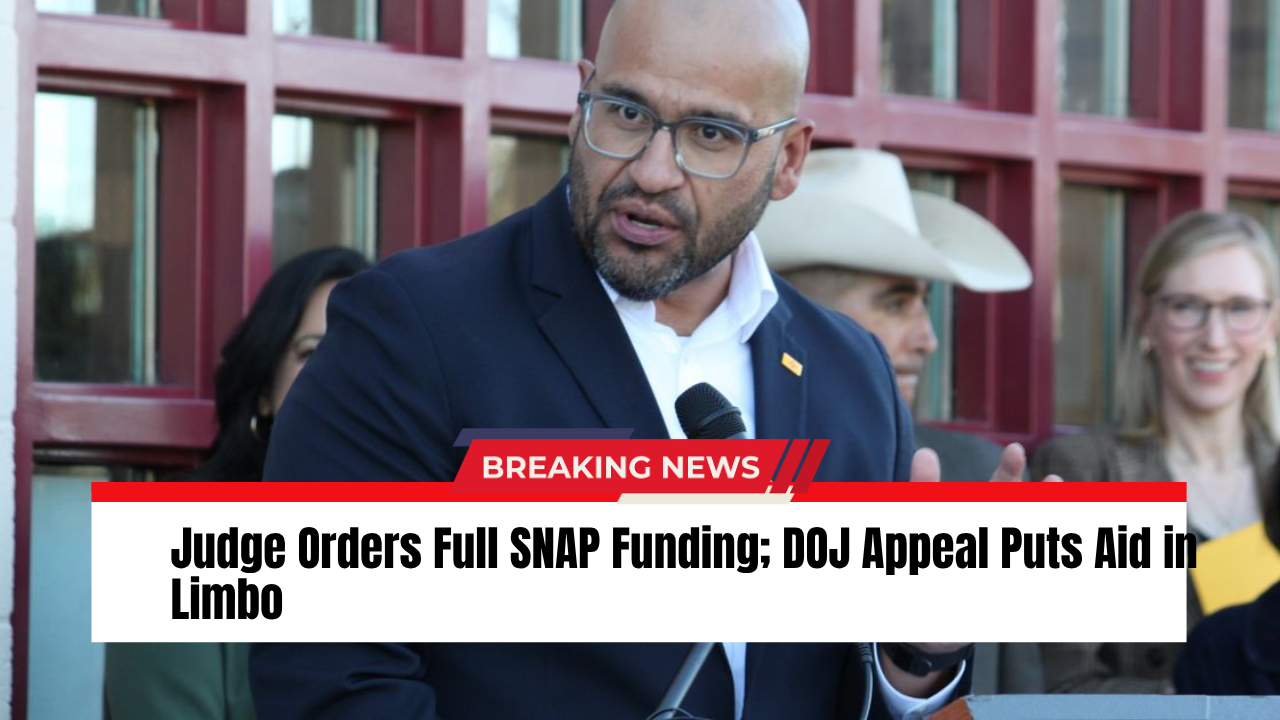Washington — A federal judge on Thursday directed the Trump administration to immediately restore full benefits under the Supplemental Nutrition Assistance Program (SNAP), safeguarding grocery money for roughly 42 million low-income Americans. Moments later, the Justice Department said it would appeal—leaving families uncertain about whether their food aid will arrive on time during the protracted shutdown.
U.S. District Judge John J. McConnell Jr., of Rhode Island, issued his second rebuke in as many weeks, faulting federal officials for failing to promptly resume payments after his initial order. Reading from the bench, he warned that withholding aid would push millions toward hunger and hardship.
The written order gives the government until Friday to transmit funds to states, which administer monthly SNAP benefits. Whether the directive will be paused during appeal remains unclear. Representatives for the White House, the U.S. Department of Justice and the U.S. Department of Agriculture did not immediately comment.
Why the court stepped in
Cities, faith groups and nonprofits sued after the administration signaled it would not fully fund SNAP during the shutdown. Judge McConnell said the government’s delay flouted his earlier ruling and cited public statements indicating political interference with the nation’s largest anti-hunger program.
What the order requires
- The federal government must release funds to states to cover full November SNAP benefits.
- States, which deliver the aid, can then load benefits to recipients’ EBT cards on their regular schedules.
- The ruling stands unless stayed by a higher court during the DOJ’s appeal.
Who’s affected
About one in eight Americans relies on SNAP for groceries. Any lapse would force families to choose between food, rent and other essentials, food banks warn—especially as local pantries face rising demand during the shutdown.
What to watch next
- Appeal posture: DOJ’s next move will determine whether payments proceed uninterrupted or face another legal pause.
- State readiness: Agencies are preparing to disburse funds quickly if money arrives, but timing may vary by state operations.
- Community impact: Nonprofits and food pantries remain on alert in case households experience a funding gap.



